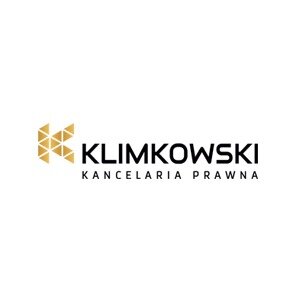Best Business Lawyers in Gdańsk
Share your needs with us, get contacted by law firms.
Free. Takes 2 min.
List of the best lawyers in Gdańsk, Poland
About Business Law in Gdańsk, Poland
The city of Gdańsk, a bustling port and commercial hub in Poland, operates under the blanket of Polish and European business laws. These laws cover a spectrum of business areas such as competition, consumer protection, intellectual property, data protection, and corporate governance. Companies operating in Gdańsk are required to observe these rules in their entirety. The business environment is regulated by the Polish Civil Code, the Commercial Companies Code, and the Freedom of Economic Activity Act, amongst others.
Why You May Need a Lawyer
Legal advice or representation is essential when starting a company, negotiating and signing contracts, addressing labor disputes, implementing data protection measures, deciphering tax obligations, and understanding zoning laws. Moreover, compliance with various industry-specific regulations and coping with possible legal disputes requires the assistance of a qualified lawyer. Even if you are versed in business law, changes in regulations occur regularly and having a professional legal advisor helps keep your business compliant and protected from potential liabilities.
Local Laws Overview
The local laws in Gdańsk largely mirror country-wide legal regulations. They mandate solid due diligence when setting up a company, rigorous observance of environmental laws especially for businesses within the port area, and adherence to regional development plans impacting zoning laws. Additionally, legal clarity is necessary for public procurement processes given the frequent host of cultural events in Gdańsk, and the city's active participation in European Union projects.
Frequently Asked Questions
1. What are the specific requirements for starting a business in Gdańsk?
You must register your business with the National Court Register, obtain a statistical number from the Statistical Office, open a company bank account, and register with the tax office and the Social Security Institution. Acquiring necessary permits for the type of business is also important.
2. How stringent are environmental laws for companies operating in the port area?
The laws are quite strict. Companies are required to commit to measures that mitigate environmental pollution and must regularly provide environmental impact assessments.
3. What language skills do we need to do business in Gdańsk?
Although most legal documentation is in Polish, many officials and business professionals speak English. It is recommended, however, to have legal documents translated by a certified translator to ensure legal accuracy.
4. Are there specific laws regarding e-commerce?
Yes, various laws apply to e-commerce businesses, including the Act on the Provision of Electronic Services, the Act on Consumer Rights, and the GDPR for data protection.
5. Can foreign companies invest freely in Gdańsk?
Yes, foreign companies and individuals can freely invest in Gdańsk, however, certain sectors require permits from the Ministry of Interior and Administration.
Additional Resources
The Pomeranian District Chamber of Attorneys in Gdańsk and the Gdańsk Economic Development Agency are good resources for legal advice. Furthermore, Gdańsk's official city website and the Polish Investment and Trade Agency provide updates on business regulations and opportunities.
Next Steps
If you require legal assistance, start by consulting with a lawyer experienced in Gdańsk's business laws. They can clarify complex queries, provide advice tailored to your situation, and guide you through legal processes. Keep informed about changes in laws by networking with industry groups and subscribing to updates from reliable legal sources.
Lawzana helps you find the best lawyers and law firms in Gdańsk through a curated and pre-screened list of qualified legal professionals. Our platform offers rankings and detailed profiles of attorneys and law firms, allowing you to compare based on practice areas, including Business, experience, and client feedback.
Each profile includes a description of the firm's areas of practice, client reviews, team members and partners, year of establishment, spoken languages, office locations, contact information, social media presence, and any published articles or resources. Most firms on our platform speak English and are experienced in both local and international legal matters.
Get a quote from top-rated law firms in Gdańsk, Poland — quickly, securely, and without unnecessary hassle.
Disclaimer:
The information provided on this page is for general informational purposes only and does not constitute legal advice. While we strive to ensure the accuracy and relevance of the content, legal information may change over time, and interpretations of the law can vary. You should always consult with a qualified legal professional for advice specific to your situation.
We disclaim all liability for actions taken or not taken based on the content of this page. If you believe any information is incorrect or outdated, please contact us, and we will review and update it where appropriate.
Browse business law firms by service in Gdańsk, Poland
Gdańsk, Poland Attorneys in related practice areas.








